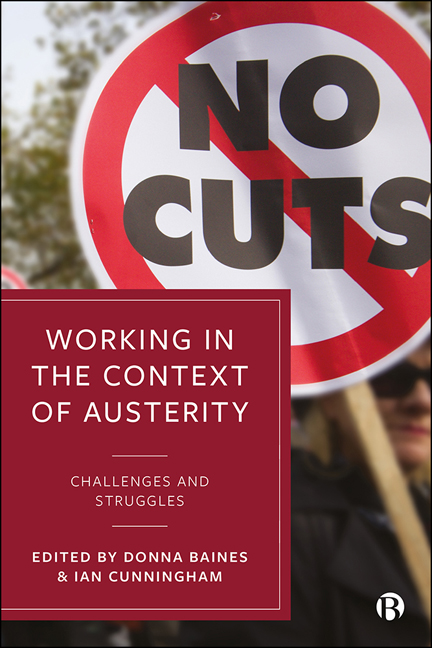7 - What We Talk About When We Talk About Austerity: Social Policy, Public Management and Politics of Eldercare Funding in Canada and China
Published online by Cambridge University Press: 18 March 2021
Summary
Introduction
A decade after the ‘global’ financial crisis, austerity is still being debated in relation both to post-crisis policy orientations and to longer-term trends since the 1970s (Dunn, 2014; McBride and Baines, 2014; Whiteside, 2018a). It is clear from the significant body of scholarship focusing on Western ‘worlds of welfare capitalism’ (Esping-Andersen, 1990) that austerity – in the sense of policies that constrain or reduce public spending on social welfare; (re)privatize or (re)commodify welfare state functions, public goods and public assets (including infrastructure) and seek to shrink the ‘social state’ (Peck, 2013) – is connected both to state responses to the 2008 financial crisis and to longer-run processes and mechanisms. These include capitalist restructuring associated with neoliberalization and with the rise of New Public Management (NPM) as a vehicle for redrawing the boundaries between state and market. NPM refers to an ideology and policy framework for the management of public finances and the public sector that seeks to embed a managerialist model ‘characterized by competitive tendering, strict adherence to legalistic contracts and performance indicators, private-sector business practices, short-term funding and continued calls for efficiency, “more for less”, value for money and cost savings’ (Cunningham et al, 2017, pp 370–1).
As we argue in this chapter, however, context-specific and relational understandings of austerity and the complex policy mobilities (McCann and Ward, 2012) of NPM require critical attention to how processes play out in particular contexts (Pike et al, 2018). There are common trends, but unevenness also exists at the national and sub-national levels (Baines and Cunningham, 2015). Moreover, the policy diffusion of NPM also goes beyond European and Anglo-American welfare states and – as in countries like Canada and Australia that did not suffer financial crises – has been a convenient driver of reform. This chapter contributes to the literatures on austerity and NPM by comparing two such contexts, focusing on sub-national scales to examine the social care sector in Vancouver, British Columbia (Canada) and Shanghai (China). It does so by using the concept of social infrastructure to connect state-led marketization and outsourcing in the eldercare sector with, on the one hand, the influence of NPM and, on the other, the financialization that has accelerated in the past two decades.
- Type
- Chapter
- Information
- Working in the Context of AusterityChallenges and Struggles, pp. 131 - 150Publisher: Bristol University PressPrint publication year: 2020



